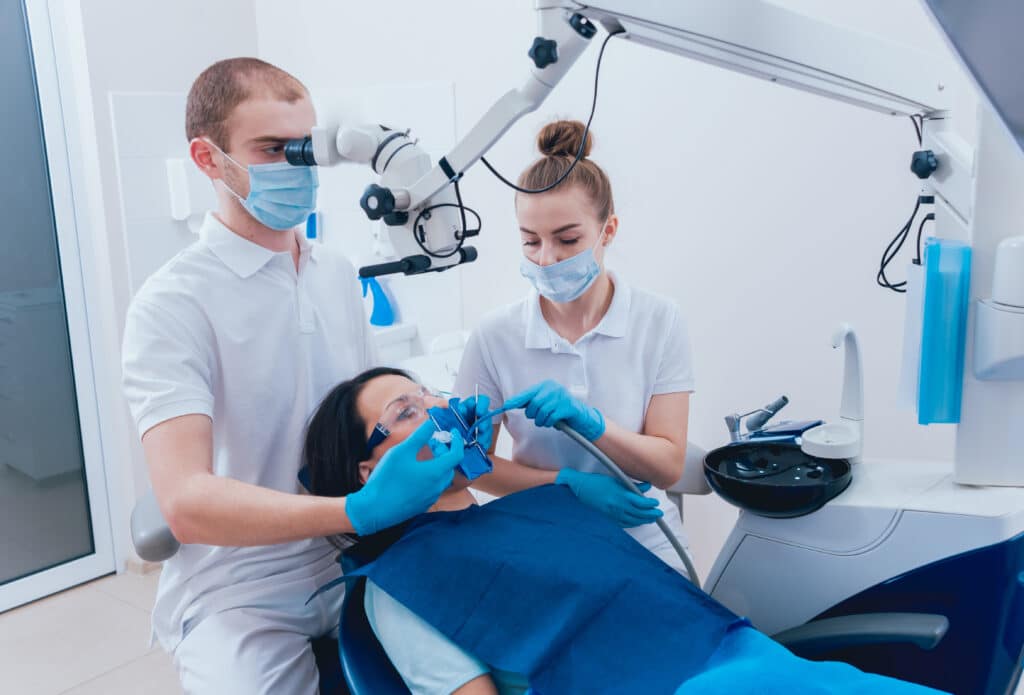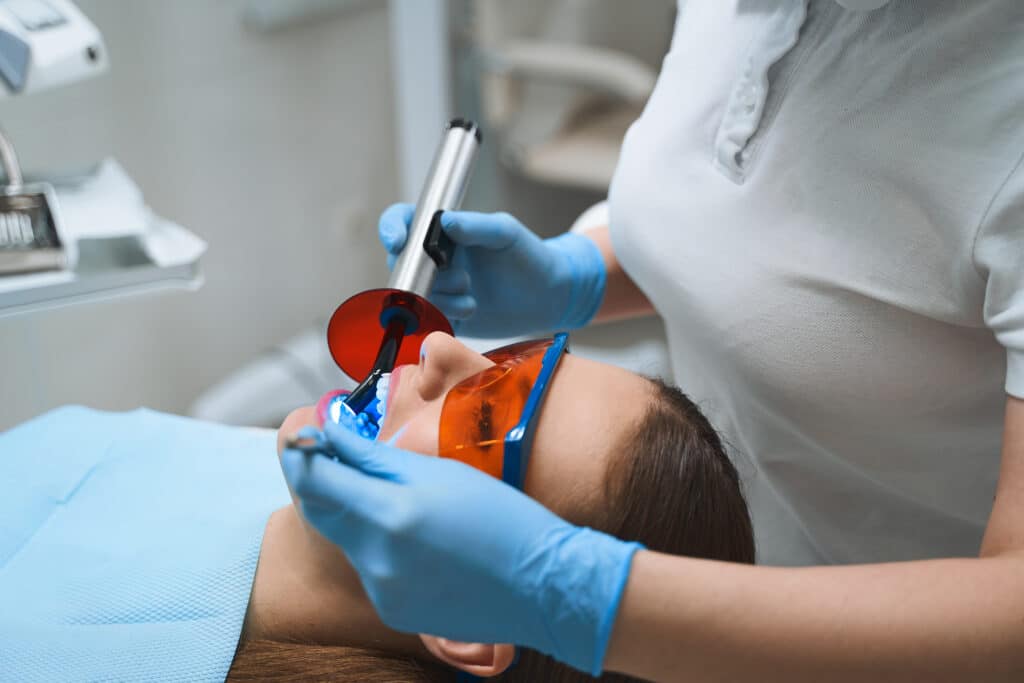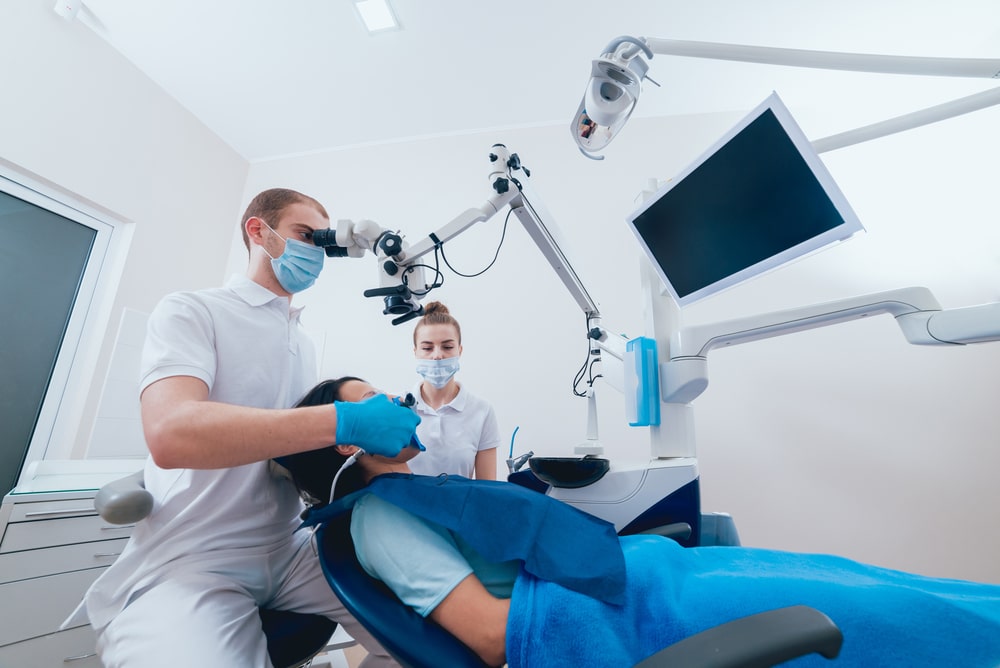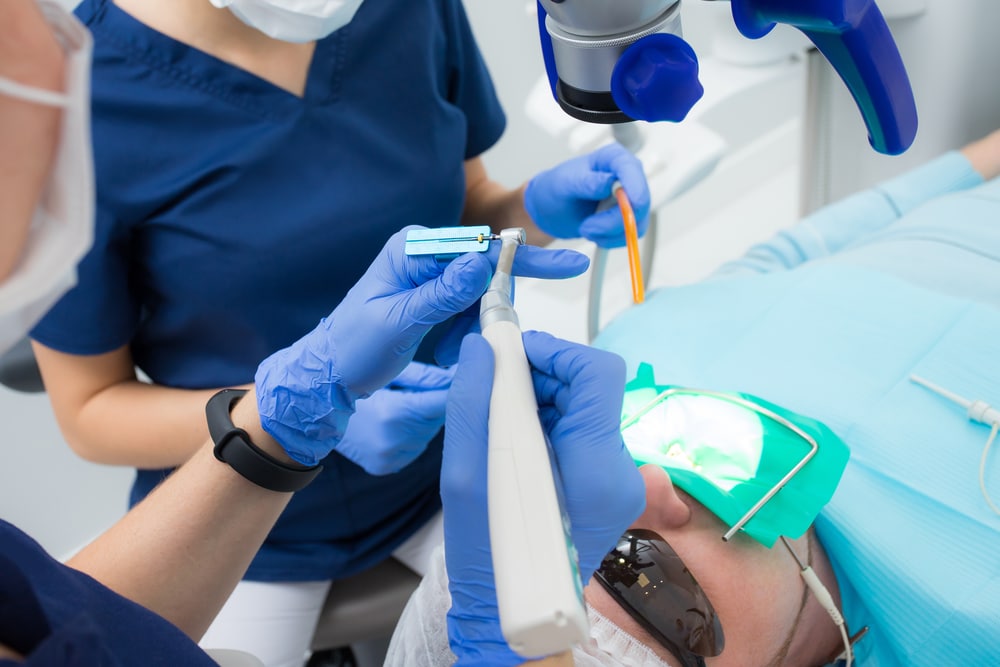
If you have gotten a root canal recently and are still experiencing irritation surrounding the tooth, it might be a sign that you need to get an apicoectomy. But you might not know much about this dental procedure and are experiencing some anxiety. If your endodontist has recommended you get an apicoectomy, you should learn all that you can about the procedure to make you feel more confident about the decision to follow through.
Our team at David G. Johnson, DDS, has all of the answers to your questions about your impending apicoectomy that should help you feel less apprehensive about getting one done.
What Is An Apicoectomy?
An apicoectomy is a minor surgery performed by your endodontist as a final attempt to save your tooth when it is continually unresponsive to root canals. There are many reasons why your tooth may have been unreceptive, including a complex root structure that didn’t allow your endodontist to remove all of the infection or a fractured or cracked tooth.

What Is The Difference Between A Root Canal And An Apicoectomy?
The most significant difference between a root canal and an apicoectomy is the treated areas. A root canal will focus on the inside of your tooth, specifically removing any infected pulp. It is a non-invasive procedure that is often performed under local anesthesia. However, a root canal is a minor surgical procedure. After you get an apicoectomy, you may need to take a few days off to recover from the procedure and any accompanying pain.
When Should You Get An Apicoectomy?
There are several reasons why you should get an apicoectomy, which you may begin to notice following an unsuccessful root canal procedure. If you are experiencing any of the following symptoms following a root canal, you should consider seeing an endodontist.
- Tooth pain that doesn’t alleviate following a root canal
- Your tooth has become reinfected after a root canal
- Calcium build-up makes a root canal difficult to perform
- You have damage to the root of your tooth or the surrounding bone
- Infection and inflammation that doesn’t go away after a root canal
Though you may experience one or more of these signs, your endodontist may not immediately opt for an apicoectomy. You may undergo a second root canal to remove any missed infection before taking more extensive steps.

How Is An Apicoectomy Done?
When you get an apicoectomy, your endodontist opens the gum tissue near the root of your tooth to see infected tissue and bone. They will remove any infected or inflamed tissue. In some instances, they will also remove the very end of your tooth’s root, putting a small filling in its place. They stitch the affected gum, allowing it to heal. Often, an apicoectomy takes 30 to 90 minutes, depending on the location of the tooth.
Downtime following your apicoectomy is generally 24 to 48 hours, though you may want to take an extra day before returning to regular activity, About one week after your initial appointment, you should schedule a follow-up with your endodontist, where they will remove any remaining stitches. At the three-week mark following your initial appointment, the soft tissue, including your gums, should be fully healed, and in about six months, any affected bone tissue should be healed.
Are There Risks Or Complications?
Like with any other procedure, there is a minor chance of complications following an apicoectomy. However, it is important to understand that the chance of complications after you get an apicoectomy is incredibly low if you go to a trustworthy endodontist. Some of the complications following your apicoectomy include the following:
- Nerves may be damaged during the procedure
- The procedure fails
- The infection near your root evolves into your sinuses
If you have undergone an apicoectomy and an infection near the root of the tooth cannot be removed, your endodontist may recommend tooth extraction. An extraction should lower the risk of infection spread, and the tooth can be replaced by an implant.
Get An Apicoectomy From An Endodontist You Can Trust

If you are experiencing complications following an unsuccessful root canal, it is important that you reach out to your dentist and see an endodontist as soon as possible. At David G. Johnson, DDS, we are confident that we can help you through this stressful time and let you get back to your day-to-day life sooner.
If you are looking for a trustworthy endodontist and would like to schedule an appointment before you get an apicoectomy, reach out to our team today at our Layton or Centerville location.





